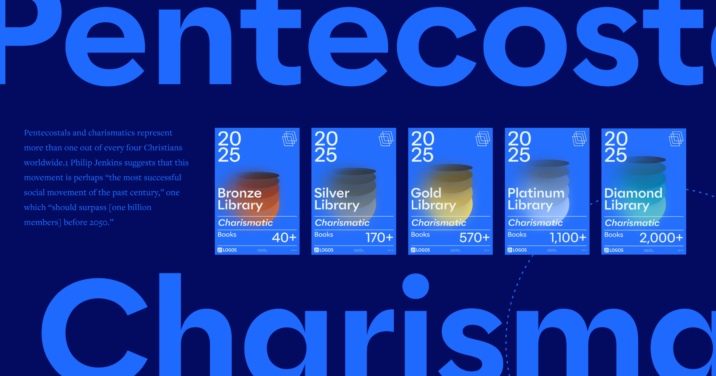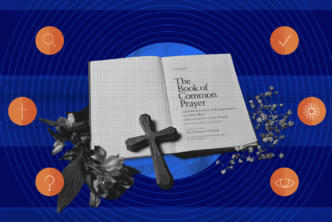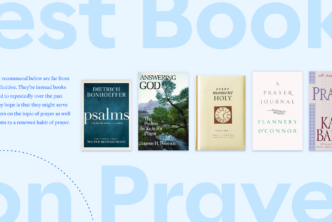Pentecostals and charismatics represent more than one out of every four Christians worldwide.1 Philip Jenkins suggests that this movement is perhaps “the most successful social movement of the past century,” one which “should surpass [one billion members] before 2050.”2
This article explains Pentecostal and charismatic (P&C) beliefs, answers common questions, and shares the best resources for P&C Bible studies.
- What do Pentecostals and charismatics believe?
- Is there a difference between charismatics and Pentecostals?
- FAQs about Pentecostal and charismatic Bible study
- What are some distinctive elements of charismatic and Pentecostal Bible study?
- What are the best resources to study the Bible as a Pentecostal or charismatic?
- The best Pentecostal study Bible
- The best deal on Logos Pentecostal and charismatic libraries
What do Pentecostals and charismatics believe?
Pentecostal, charismatic, and “continuationist” movements are often treated as the first, second, and third waves of Spirit renewal. We will look at each in turn.
What do Pentecostals believe?
A classic Pentecostal—and I will use here the language of the Assemblies of God—is one who accepts that:
- Baptism in the Spirit is “distinct from and subsequent to” conversion
- Speaking in tongues is “the initial physical sign” of Spirit-baptism
- Miraculous spiritual gifts continue today
Pentecostalism began in the early twentieth century. Frank Bartleman recounts the fascinating Azusa Street Revival in How Pentecost Came to Los Angeles. Pentecostalism birthed denominations like the Assemblies of God and the Church of God.
What does “Pentecostal” mean?
The term “Pentecostal” references the outpouring of the Spirit in Acts 2 on the day of Pentecost, accompanied by a manifestation of tongues. This is seen as a pattern for all believers, a pattern repeated elsewhere in Acts (Acts 8:14–24; 10:17–48; 19:1–7). Some Pentecostals have backed away from the idea that tongues is the initial evidence of Spirit-baptism.
What do charismatics believe?
The charismatic renewal movement began in the 1960s. While classical Pentecostalism birthed new churches, the charismatic movement entered already existing denominations with broadly Pentecostal theology. Charismatics are now found in virtually every Christian denomination in the Protestant, Catholic, and Orthodox traditions.
What does “charismatic” mean?
The term “charismatic” comes from the Greek word for “gifts,” charisma, a term found in passages such as 1 Corinthians 12–14, Romans 12:6–8, and 1 Peter 4:10–11.
What do continuationists believe?
A third renewal movement began in the 1980s as evangelicals accepted some elements of charismatic faith while rejecting some of the distinctive beliefs of Pentecostals and charismatics. Sometimes called the “Third Wave,”3 “Third-Wave Evangelicalism,”4 or more broadly, and perhaps more commonly today, “continuationists,” this third wave of renewal struggles to find an agreed upon title but usually dislikes the terms Pentecostal and charismatic.5 This group has typically distanced itself from the Word of Faith movement and other forms of the so-called “Health and Wealth” or “Prosperity” gospel.6 Emphasizing signs and wonders and prominently associated with the John Wimber Vineyard movement, this group of independent charismatics, once termed “neocharismatics,” is now larger than all Pentecostals or charismatics combined.7
What does “continuationist” mean?
The word “continuationist” stresses the belief of this movement that all the spiritual gifts continue today. The word is also sometimes used as a broad term to describe anyone who holds that the miraculous gifts in operation in Acts continue into the present day.
Is there a difference between charismatics and Pentecostals?
The terms charismatic and Pentecostal are sometimes used interchangeably and “even for the expert it is frequently difficult to draw a dividing line,”8 but they can be helpfully distinguished in three ways:
- Historically, Pentecostalism came first and inspired the later charismatic movements (though historical precursors of both may be found in earlier Spirit movements).
- Ecclesiastically, Pentecostalism birthed new denominations while charismatic movements influenced pre-existing ones.
- Theologically, while both groups believe miraculous gifts continue today, charismatics often reject the two doctrines of: (1) “subsequence” (that Spirit-baptism is separate from and subsequent to conversion), and (2) tongues as the initial physical evidence of Spirit-baptism. That is, many charismatics reject the first two distinctive beliefs of classical Pentecostalism listed above.
FAQs about Pentecostal and charismatic Bible study
Now that we know what Pentecostal and charismatic mean, we can address some common questions about them. Three questions about P&C Bible study are commonly asked.
1. Do Pentecostals study the Bible?
Early Pentecostalism prioritized global missions work and an eschatological urgency that left little time for formal training. Amateur workers assumed that the Spirit had equipped them fully for service by Spirit-baptism alone, without other means. Some were concerned that a detached intellectualism might suppress the work of the Spirit. This created an anti-intellectualism in the early movement.9
However, the notion of anti-intellectual Pentecostalism is a worn-out stereotype today. It doesn’t represent the modern Spirit-empowered movement.
2. Are there Pentecostal scholars?
Fifty years ago, Pentecostal scholarship was sparse, but no longer. Pentecostal scholarship has ripened as its scholars have entered and contributed widely to virtually every academic discipline. Spirit-empowered scholarship is ably represented by respected systematic and biblical theologians, historians, philosophers, exegetes, scientists, artists, and more.
3. Who are some well-known charismatic or Pentecostal scholars?
A short list would include:
- J. Rodman Williams
- Amos Yong
- Vinson Synan
- William and Robert Menzies
- Frank Macchia
- Lee Roy Martin
- Simon Chan
- Anthony D. Palma
- Roger Stronstad
- Russell Spittler
- Wonsuk Ma
- Stanley M. Horton
- Dongsoo Kim
- Allan H. Anderson
- Gordon Fee
- Max Turner
- Craig Keener
- Sam Storms
- Wayne Grudem
- D. A. Carson
There are many, many more names that could be added.10
What are some distinctive elements of charismatic and Pentecostal Bible study?
In Spirit Hermeneutics: Reading Scripture in Light of Pentecost, Craig Keener explains elements of P&C Bible study, naming:
- Prayerful posture
- Global context
- Missional focus
- Eschatological lens
- Experiential nature
- Word and Spirit epistemology
Keener demonstrates the biblical basis of each while urging biblically and historically sensitive Pentecostal readings.
Check out Keener’s widely acclaimed Acts commentary.
What are the best resources to study the Bible as a Pentecostal or charismatic?
Having answered common questions, we now want to identify the best resources for P&C Bible study. Logos provides an impressive collection of resources for P&C Bible study. Get the tools you need to help you hear the Spirit’s voice and live in obedience to his word.
Charismatic beliefs and Bible study
A good place to begin is with the single bestselling introduction to hermeneutics in any evangelical tradition. Co-authored by Gordon Fee, who was a widely respected NT scholar and ordained minister of the Assemblies of God, How to Read the Bible for All Its Worth explains the how-to of Bible study in clear, simple language. Want more? Read the rest of the series. Or watch the other author, Douglas Stuart, lecture through the book with Mark L. Strauss.
- For the diligent pastor or seminary student, Fee’s handbook expertly walks you through all the steps of NT exegesis.
- Robert and William Menzies build an exegetical and theological case for classic Pentecostal beliefs in Spirit and Power: Foundations of Pentecostal Experience.
- A number of authors present a Pentecostal perspective in Systematic Theology, edited by Stanley M. Horton.
- Everyone interested in spiritual gifts should listen to Sam Storms’s comprehensive guide.
The best Pentecostal study Bible
Many charismatics and Pentecostals find guidance for understanding the Bible and living the Spirit-filled life in the New Spirit-Filled Life Bible. Others encounter God and revival in the Fire Bible: Global Study Edition.
The best deal on Logos Pentecostal and charismatic libraries
Items on Logos can be purchased individually at great prices, but you can save more and get the best bang for your buck with a Logos library.
Compare Pentecostal and charismatic Logos libraries.
For me, buying a library on Logos is about stewarding God’s money well (Luke 16:9–11). Doing so strikes that perfect balance between getting the best resources to equip me for ministry and maximizing my personal savings.
What do I recommend? If you’re serious about P&C Bible study, you should consider at least Logos P&C Bronze. With Logos P&C Bronze, you’ll get different English Bibles to consult, some classic works of Pentecostalism, a suite of original languages tools, plus hundreds of other books.
God uses means
God uses means to equip us, especially through his Word. Our task is the diligent labor of interpreting it accurately (2 Tim 2:14–17) using the best tools possible.
The right Logos library tailored to your ministry can make Bible study easier, smoother, and more productive.
Expand your Charismatic and Pentecostal resources with these libraries
- According to research in 2020 from the Center for the Study of Global Christianity.
- Philip Jenkins, The Next Christendom: The Coming of Global Christianity, 3rd ed. (Oxford: Oxford University Press, 2011), 10.
- Wayne A. Grudem, “Preface,” in Stanley N. Gundry and Wayne A. Grudem, eds., Are Miraculous Gifts for Today?: Four Views, Zondervan Counterpoints Series (Grand Rapids, MI: Zondervan, 1996), 11–12.
- Gregg R. Allison, “Third Wave Evangelicalism,” in The Baker Compact Dictionary of Theological Terms (Grand Rapids, MI: Baker Books: A Division of Baker Publishing Group, 2016), 210.
- Vinson Synan, The Holiness-Pentecostal Tradition: Charismatic Movements in the Twentieth Century, 2nd ed. (Grand Rapids, MI: Eerdmans, 1997), 271–74. Grudem wrestles with various terms for this group, all of which he finds unsatisfactory. See Wayne A. Grudem, “Preface,” in Are Miraculous Gifts for Today?, 11–12, fn. 2.
- Sam Storms, Historical Theology (Edmond, OK: Sam Storms, 2018).
- Stanley M. Burgess cites Barrett’s conclusion that “neocharismatics actually outnumber all pentecostals and charismatics combined.” Stanley M. Burgess, ed., The New International Dictionary of Pentecostal and Charismatic Movements (Grand Rapids, MI: Zondervan, 2003), xviii. The term “continuationist” was not yet in vogue when Burgess wrote, but I suspect he would use it instead were he writing today, as “neocharismatic” has become almost extinct as a title.
- Stanley M. Burgess, ed., The New International Dictionary of Pentecostal and Charismatic Movements (Grand Rapids, MI: Zondervan, 2003), xviii.
- Wolfgang Vondey, Pentecostalism: A Guide for the Perplexed (London: Bloomsbury, 2013), 135–37.
- I included in the above list mostly Pentecostals, as they sadly face the anti-intellectualism stereotype most commonly. I also include a few charismatics and continuationists who reject distinctly Pentecostal beliefs.





